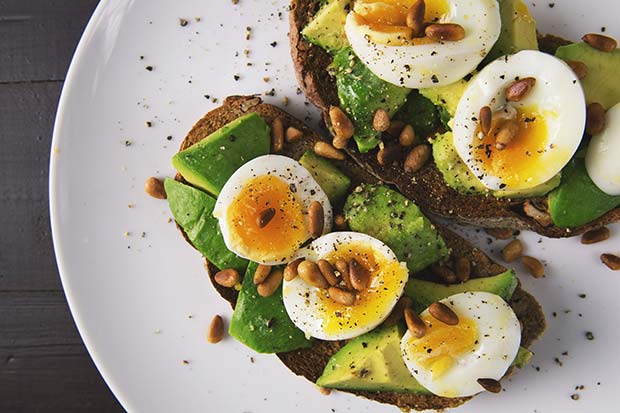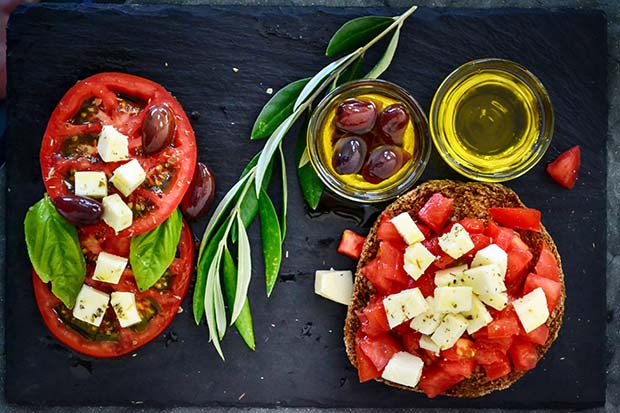If one point stands out more than any other in the food market it is that that producers/retailers who ignore the trends to a healthier food life style do so at their perilous cost. The statistics proving those trends do not mislead so what can we learn from them and what responses should be made?
 As traditional mealtimes are becoming more fluid we are seeing an increase in healthy snacking, with 33% of consumers snacking more than twice a day, points out Helene Henderson, New Ventures Brand Manager for the LaraBar healthy vegan snack, part of the General Mills Group. And with a reported 85% attempting to improve their diet, more and more are passing by confectionery and crisps when choosing something to snack on. It is hardly surprising, then, that sales of minimally processed ‘real food’ snack bars are rising 7.5%.
As traditional mealtimes are becoming more fluid we are seeing an increase in healthy snacking, with 33% of consumers snacking more than twice a day, points out Helene Henderson, New Ventures Brand Manager for the LaraBar healthy vegan snack, part of the General Mills Group. And with a reported 85% attempting to improve their diet, more and more are passing by confectionery and crisps when choosing something to snack on. It is hardly surprising, then, that sales of minimally processed ‘real food’ snack bars are rising 7.5%.
Particularly noticeable in these changing life styles is the demand for gluten-free and dairy-free options taking off, with one in 10 people avoiding gluten altogether. Wholesalers and retailers who stock healthy snack bars are therefore winning big, says Helene. Americans would seemingly agree, where sales of Larabar are the fastest growing wellness brand in the nutritious category, hitting £200m sales in 2018. In UK convenience stores its weight management snack bar brand, Fibre One, is growing 159.2% in the channel.
Over in the drinks sector health concerns are also making their mark in driving changing sales patterns, delivering a substantial rise in alcohol-free ‘spirit’ brands, which divide into two categories; those which replicate the existing spirits and others which create new formulas and experiences. Consequently, however, the rise of products in the market will put pressure on pricing, suggests Red and Kate Johnson, founders of HighBall Cocktails. Over the coming months it is likely that existing spirit brands will extend to alcohol-free alternatives, as already has happened with mainstream beer brands. Research shows, says HighBall, that growing interest in the NoLo category is attitudinally driven, rather than by a particular demographic. Among reasons cited are looking for lower calorie options, driving, and perhaps avoiding the morning-after fogginess.
Dramatic attitude changes in the drinks industry are also affecting the British soft drinks market, says Christopher Banks, Chairman of CRAFTED Drinks. Many customers are turning to healthier, lower sugar alternatives. A recent survey revealed that 65% of people of all ages are proactively trying to lead a healthier life style. “With statistics like that we guarantee the influx of new-year, new-me customers just around the corner, so there has never been a better time for wholesalers to stock a healthier range of soft drinks.
Lucozade Ribena Suntory echoes those soft drinks findings. Shoppers’ spending on zero and low sugar drinks has increased by 33% and 29% respectively, with Lucozade Zero growing by 12%.
 Ice creams may be everyone’s temptation at times but that does not mean that health concerns fly out the window. Haagen-Dasz, for example, reports that the number of lower calorie ice creams options available has grown considerably in the last 12 months, which maintain the same great taste as full-fat options. The introduction of the Haagen-Dasz 150 cal Gelato collection this year has meant the company has been able to open up the brand for people looking for that permissible treat, “and we have been thrilled at the market response to this piece of innovation,” says the company.
Ice creams may be everyone’s temptation at times but that does not mean that health concerns fly out the window. Haagen-Dasz, for example, reports that the number of lower calorie ice creams options available has grown considerably in the last 12 months, which maintain the same great taste as full-fat options. The introduction of the Haagen-Dasz 150 cal Gelato collection this year has meant the company has been able to open up the brand for people looking for that permissible treat, “and we have been thrilled at the market response to this piece of innovation,” says the company.
As a food company, Adelie Foods are well aware of the importance of picking up a healthy lunch while on the move, a market that has been growing strongly. This has meant an explosion in the volume and variety of outlets offering a variety of healthy snack options on the High Street, where competition is fierce and consumers are less likely to be loyal to one channel or outlet, warns Wayne Smith, head of category marketing. It has never been more important, therefore, to get your food-to-go (FTG) and merchandising right. Adelie has worked hard on its light choice sandwiches all under 400 calories with no ‘red’ nutritionals. According to various data sources, some 47% of people are trying to reduce their fat intake and 30% look to cut sugar. Britons, it seems, are now buying lunch out of the home more often than breakfast and dinner combined. In the convenience stores the FTG market is set to be worth £6.2bn, with a total market share of 30%. Within the FTG market the meal deal is a British institution and URBAN Eat believes fruits and snacks pots will continue to be very popular as part of a deal.
In order to keep customers on board FTG suppliers will have to continue to innovate, drawing in customers with exciting, new trend-led flavours and products. Particularly over the last year, says Wayne, the biggest trend in NPD has been pretty varied. “We have seen more and more snack pots and high protein products as well as flavour influences from Japan, Latin America and South-East Asia cuisines.
Many may be turning their backs on dairy milk but that does not mean milk per se should be shunned if figures for flavoured milk are any guide, currently worth £353m a year, and still seeing incredible year-on-year growth of 13.9%. However, many retailers have been missing the opportunity to grow their soft drinks category by including dairy drinks within the fixture front-of-store, having often sited them only in the dairy drinks chiller or ambient aisle. As shoppers look to healthier alternatives to traditional soft drinks this makes flavoured milk drinks a category that retailers cannot ignore when considering their soft drinks mix, advises Wayne Thomson, Yazoo’s business unit controller for out-of-home. Clearly, those retailers who are stocking dairy drinks within their soft drinks fixture are reaping the benefits. One Spar store in West Malling saw a 48% rise in dairy sales after a simple shelf reorder and the use of branded POS.
Gluten-free is a big issue retailers should tackle, suggests Rebecca Raynor, director of Glebe Food Farms. Recent studies reveal that gluten-free products reign supreme as the nation’s most popular type of free-from food, so it is key for operators to invest in gluten-free alternatives both for those with a gluten intolerance and those who are avoiding gluten as part of a healthy lifestyle. According to Mintel, only 20% of consumers avoid certain ingredients owing to allergy or intolerance, which is similar to the 22% of those who do so as part of a healthy lifestyle.
Crisps and snacks are also changing their profiles over health issues. KP Snacks relaunched its KP nuts this year, acknowledging that 76% of consumers recognise that nuts provide a positive source of energy, fibre and protein and so 83% of KP’s range are already largely free of added flavour enhancers, artificial sweeteners and 100% free of artificial colours.




Comments are closed.